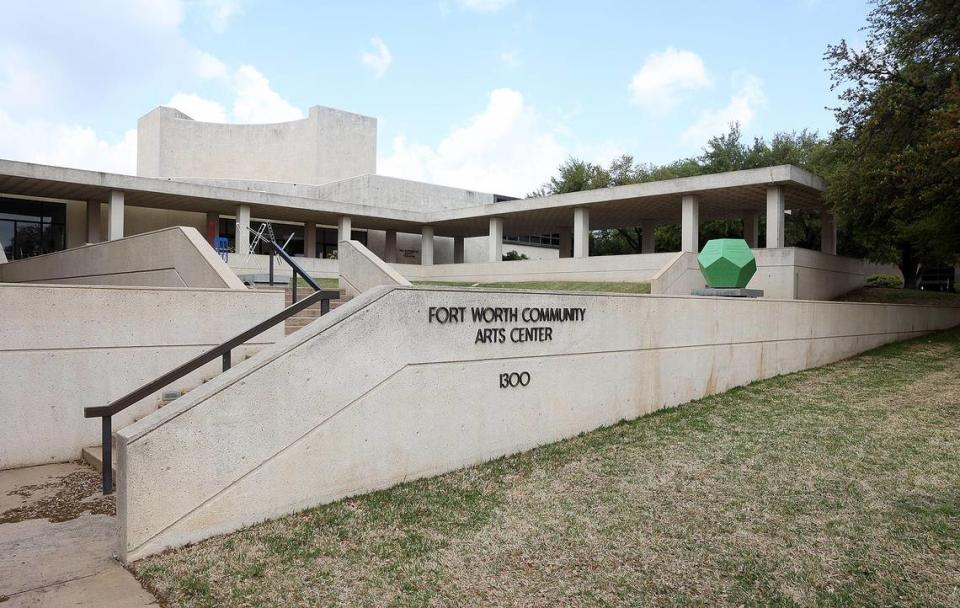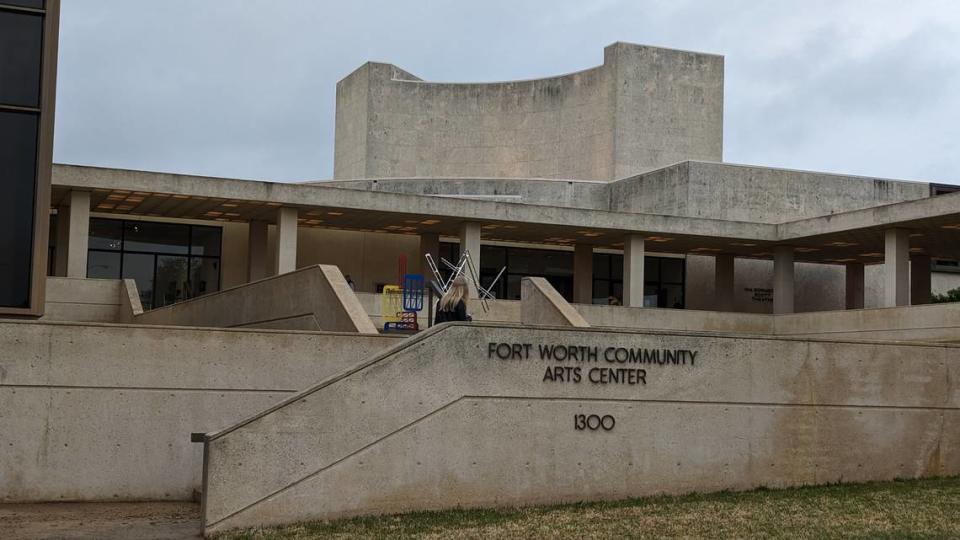Fort Worth needs $26 million to fix the city’s arts center. Arts community says pay up
Fort Worth’s community arts center desperately needs repairs.
The city owned building was home to the Modern Art Museum when it first opened in 1954. It became a community arts center in 2002, hosting gallery shows and theater performances, as well as serving as a home for groups like Kids Who Care, a musical theater nonprofit, and Art Room, an arts and education nonprofit.
More than 300 people packed the center Thursday to share personal stories with a city task force about what makes the center so special.
Performing in the theater helped Texas Wesleyan graduate Sara Blair overcome drug and alcohol addiction. She told the task force she grew up in poverty, and that the center provided people with few financial resources a place where they could better themselves through performing and visual arts programs.
It’s also an affordable option theater groups looking for a place to perform, said Joe Brown, a senior professor at Texas Wesleyan University.
“Will Rogers is a dump and Bass Hall is too expensive,” he said.
The nearly 70-year-old building in the heart of the city’s Cultural District has a ground water leak that floods its basement, along with plumbing, electrical, and mechanical systems that need to be brought into the 21st century.
It also needs updates to comply with the American’s with Disabilities act, including ramps and accessible bathrooms.
The repairs are estimated to cost $26.1 million, according to a 2022 assessment from Fort Worth-based architecture firm Bennett Partners.
That could reach $30 million given inflation and rising construction costs, assistant city manager Fernando Costa said, speaking at the task force meeting.
The center has been managed by nonprofit Arts Fort Worth since 2005.
The lease agreement between the city and the nonprofit states the city will pay $200,000 per year for maintenance, and $100,000 per year for electricity. Arts Fort Worth is responsible for the rest.
Fort Worth has similar agreements for managing city-owned facilities like the Zoo, Botanic Garden, and Dickies Arena.
However, Arts Fort Worth has struggled to raise enough money to address long term maintenance issues, leading the city to consider a different model for how to manage the building going forward.
Members of Fort Worth’s arts community, speaking at the meeting Thursday, argued the center serves an important civic function as an incubator for the arts and deserves more financial support from the city.
Fort Worth needs more spaces where visual artists can exhibit their work without having to overcome the hurdles of expensive gallery fees or bending to the whims of wealthy donors, said Wesley Kirk, a Fort Worth-based photographer and filmmaker.
While the center has been a springboard for many Fort Worth artists, its limited capacity is choking off the creative community and forcing many to move to other cities more supportive of the arts, Kirk said.
Task force chair and outgoing city council member Leonard Firestone told the audience that the building will still be used to support local art regardless of the how the city decides to approach the maintenance issues.
“It’s not a question of if we use the building for the arts, it’s a question of how best we utilize the building for the arts,” Firestone said.
The task force presented three options for how to repair the building and handle maintenance going forward.
The first proposal called for using the 2026 bond program to pay for repairs, along with the city spending $1 million per year in the budget for maintenance costs.
The city could get a 25% rebate on the repair costs if it designated the building as a historic site, said Jerre Tracy, executive director of Historic Fort Worth Inc.
The second would still have the city pay for all the fixes through the bond program, but have a 50-50 split of maintenance costs with Arts Fort Worth.
It would also add to the building, so it could accommodate uses like an African American Cultural Museum, said Costa, the assistant city manager.
The third option be to redevelop the center into a “world class cultural hub,” Costa said, while noting the specifics of that option would be fleshed out.
The task force has two more public meetings, from 10 a.m. to noon Thursday, April 13, and Thursday, April 27, before making a recommendation to the city council May 2.
Both April meetings will be held at the arts center at 1300 Gendy St.
Costa also urged residents to fill out an online survey to help the task force get feedback from residents about what to do with the building.



